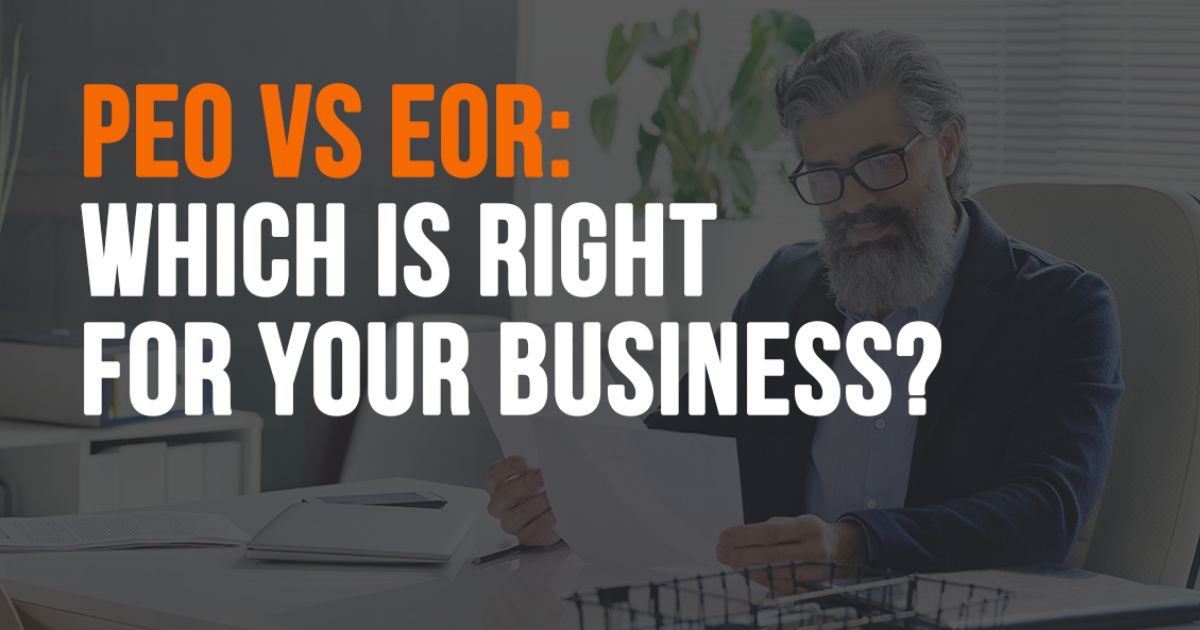Businesses must collaborate with an employer of record (EOR) or a professional employer organization (PEO) to hire employees globally. Despite their similarities, there are still some differences between PEO vs. EOR.
An EOR employs a portion of your company and its employees. Meanwhile, a PEO manages all of your employees and handles all HR-related tasks. The primary distinction between PEO and EOR is that a PEO operates as a co-employer, whereas an EOR serves as the legal employer of an organization’s distributed workforce.
Scroll down to learn more about these services and determine which is best for your company.
What Is A PEO?
A PEO (Professional Employer Organization) is a third-party human resources company that serves as your co-employer. Given the number of employees that various PEO clients have, insurers consider PEOs to be large enterprises, which allows PEOs to access better insurance plans. PEOs pay for your health insurance, workers’ compensation, and other forms of company insurance, allowing you to provide more excellent coverage at a reduced cost.
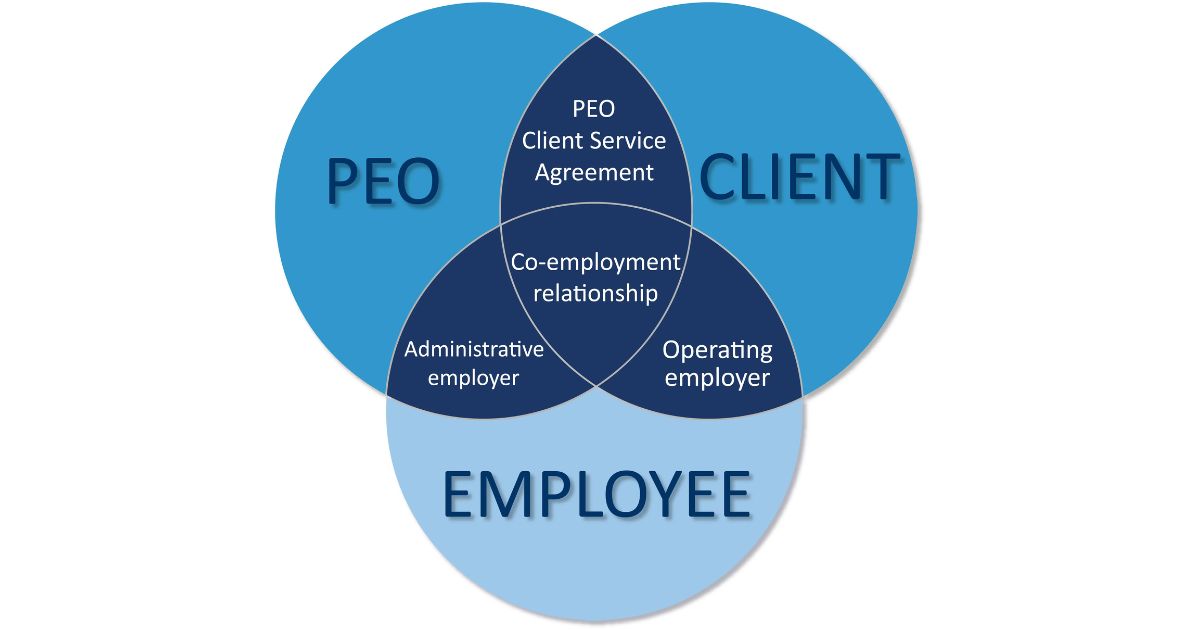
Businesses that require assistance finding full-time, permanent employees in their local area sometimes choose PEO partners to offload tasks such as:
- Payroll processing
- Administration of benefits
- Compliance with regulations
- Tax filings
Although PEO arrangements are your co-employer, you and your employees should occasionally notice this kind of service by maintaining daily control over tasks, scheduling, management, and salaries. If you are worried that a PEO employee may go too far, pick PEOs certified by the IRS or the Employer Services Assurance Corporation.
See more: How Do You Record Wages When Using A PEO
What Is An EOR?
An EOR ( Employer Of Record) operates as the exclusive legal employer of your workers. Your employees technically sign contracts with the EOR rather than your business under this structure. The EOR performs much of your employer’s administrative work but doesn’t overuse authority in your daily experiences.
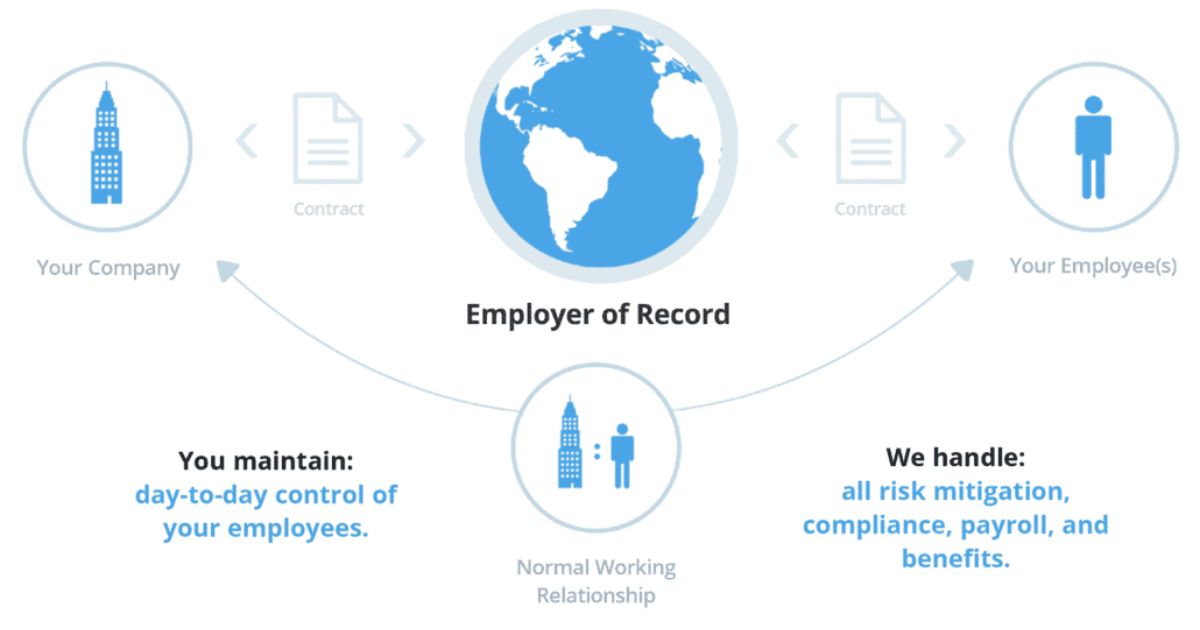
EOR services are in charge of all HR-related responsibilities, such as:
- Locality-specific onboarding
- Payroll and taxes
- Payroll compliance
- Benefits management
- Unemployment claim reporting
Employer of Record, in other words, allows companies to hire international employees before creating a physical organization in Vietnam, which is especially beneficial for employers that want to extend their business from overseas to Vietnam as a first step.
Furthermore, it is useful when companies want to avoid setting up processes in Vietnam but prefer to outsource procedures such as IT support and customer service.
PEO vs. EOR: What Are The Differences?
Though some people use these terms interchangeably, there are critical differences between the employer of record vs. PEO. PEOs primarily handle HR responsibilities for organizations that already have entities, whereas EORs hire personnel on behalf of their customers without needing them to form an entity. Let’s have a look at some significant distinctions between PEO and EOR that you need to know:
Structure
A PEO is a co-employer, a third-party company that handles your company’s human resources. On the other hand, EOR employs your distributed workforce in places where you don’t control the organization.
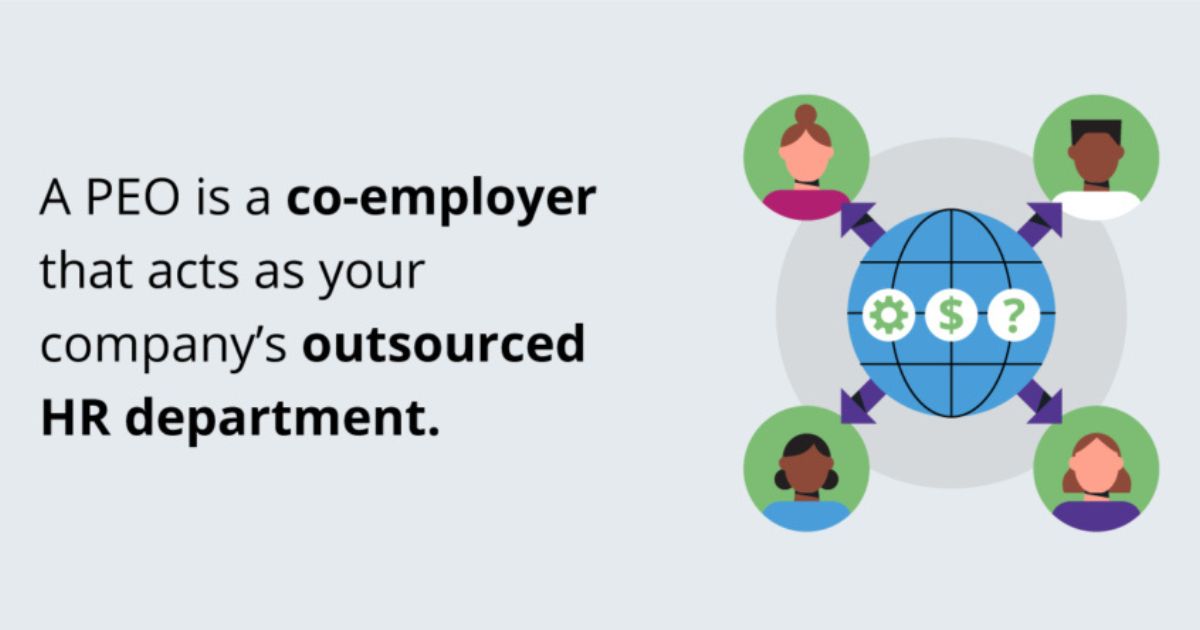
Your business is the on-site employer with a PEO partner, and you have responsibility over HR-related decisions that a PEO partner would assist. In contrast, you are empowered with HR-related choices when you use an EOR, but you do so with a trusted partner that provides access to high-quality benefit programs and local experience.
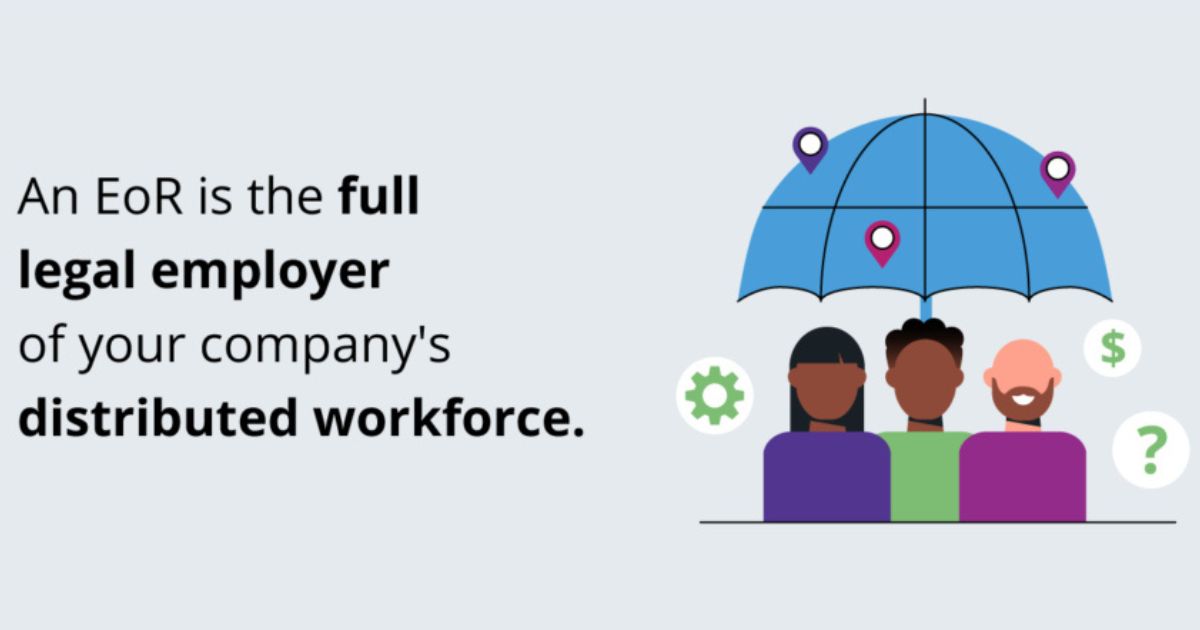
Replacement Or Complement
A PEO may handle most of your HR operations and put all your workers on the PEO’s payroll. The PEO manages everything from onboarding through terminations, employee evaluations, state and federal unemployment tax rates, health insurance, and more.

An EOR, on the other hand, allows you to outsource a portion of your HR work, reducing your HR department of administration for a subset of your workforce. Seasonal workers, contractors, project-specific hiring, and out-of-state staff are all controlled by an EOR.
Cost
You will pay a fixed charge per employee per month or a portion of your payroll per pay period, depending on your chosen PEO. PEO costs per employee usually are % on total cost per month, Some specific PEOs charge a one-time startup fee.
EORs have cost structures and rates similar to PEOs, although they are less expensive overall. Because EORs cover your benefits and EOR insurance policies, you will save considerable money.
Insurance Coverage
PEOs may need you to give your own insurance, whereas EORs provide coverage for general liability and workers’ compensation. EORs ensure that the personnel they supervise are covered for damage, such as workplace-related diseases or injuries.
PEOs frequently find it hard to secure worker’s compensation in non-clerical sectors. If your company encounters this situation, you will need to certify yourself. The party can go on as long as the company owner has a liquor license, so this may be fine, but it is vital to know ahead of time.
Flexibility
EORs often perform fewer HR operations than PEOs, but the HR duties they undertake for businesses are frequently more complicated than those handled by PEOs.
Some PEOs refuse to work with microbusinesses (companies with less than ten workers). EORs, on the other hand, are flexible when dealing with small businesses. Furthermore, given the EOR’s skill and experience in monitoring temporary employee or independent contractor agreements, microbusinesses may prefer EORs.
PEO vs. EOR: Which Is Best For Your Organisation
After exploring the definition and the key differences between PEO and EOR, keep reading to learn more about two factors answering the question of which is best for your organization.
Labor force
Scaling costs a lot of money for small enterprises and startups, especially when growing and recruiting in new areas. Consider a PEO to join as a co-employer and manage HR-related activities in your new location if your company is preparing to start a new entity in a different state or nation.
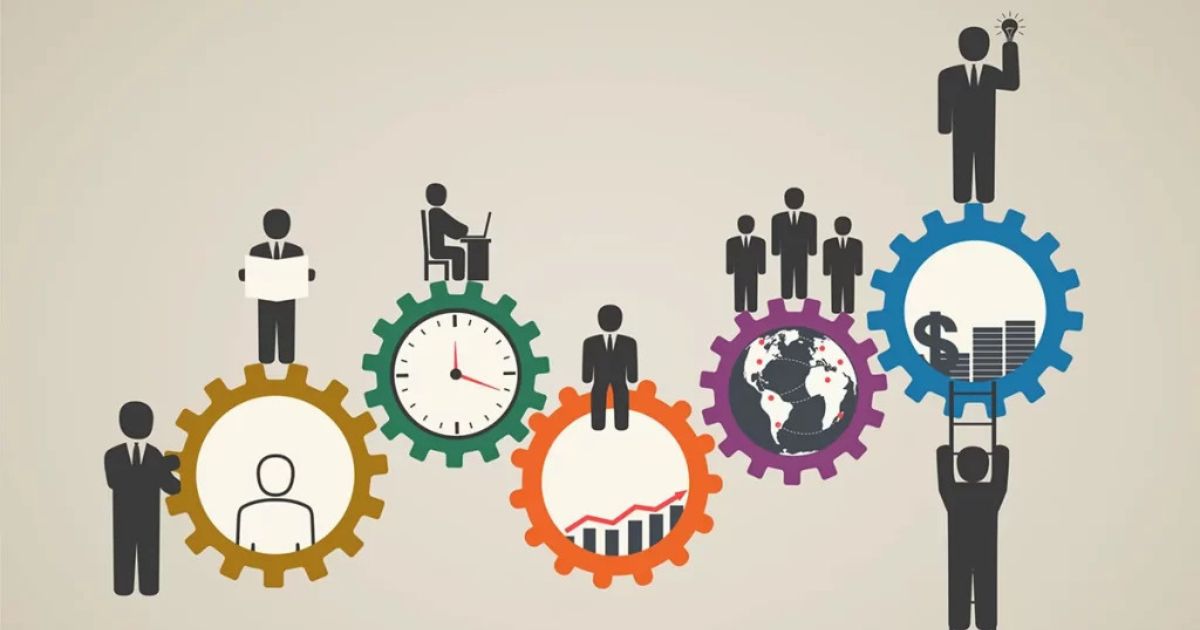
If your company wants to employ in a new location or multiple countries at once, an EOR speeds up the onboarding process and takes responsibility for labor law compliance.
The Size Of Footprint
Suppose you need different organizations in the states or countries where you want to employ new talent. In that case, the costs of creating new entities and building the foundation to comply with local laws and regulations will be prohibitively expensive. Rather than starting new businesses or avoiding employing personnel elsewhere, invest in an EOR partner who will serve as an entity on your behalf and provide the platform for compliance employment.
Suppose you own or plan to establish an organization in a new area. In that case, a local PEO partner will offload HR functions in that location, allowing you to focus on managing your employees.
Conclusion
PEO vs. EOR: Which Is Best For Your Organization? Hopefully, after reading this article, you have received the clearest answer to this question.
PEOs primarily handle HR responsibilities for organizations that already have entities, whereas EORs hire personnel on behalf of their clients without needing them to form an entity. If you do not own an organization in the nation where you wish to hire someone, you should employ EOR instead of a PEO.
Read also:
Best EOR Companies To Ensure Compliance
Best Employer Of Record Benefits Company
How To Pay International Employees
Ms. Tracy has worked in human resource consulting for over 15 years. A driven entrepreneur focused on business expansion and people development. She previously worked as Country Manager for an international Australia firm that specializes in global workforce management, as well as several key roles as Business Growth Director and Executive Search Director for both large local firms to effectively drive their business growth. A strong emphasis is placed on aligning organizational priorities/objectives with business needs. She has a large network of local business leaders and a thorough understanding of the local market.

